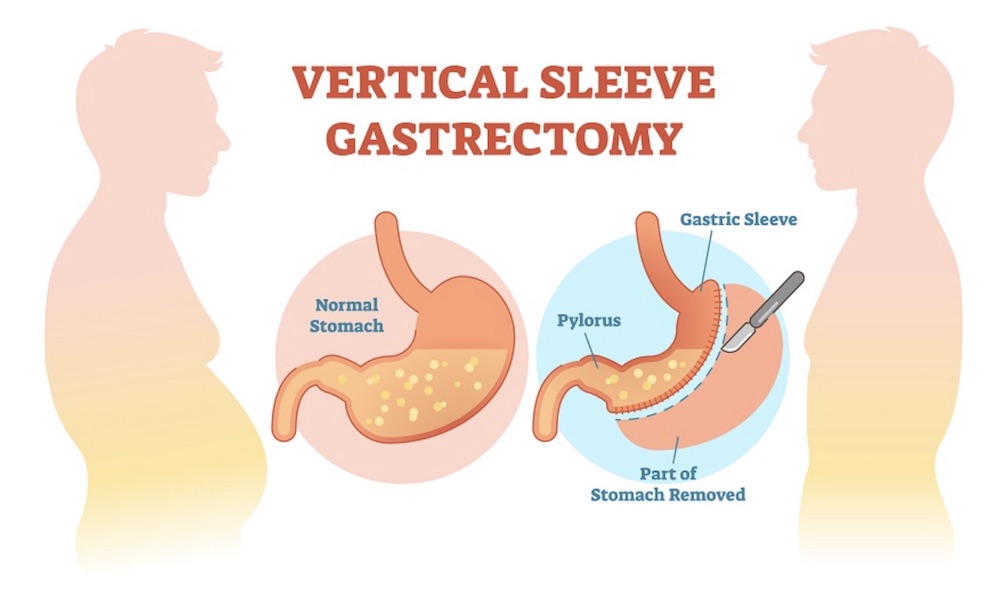Significantly Reduce Weight With Gastric Sleeve Surgery

Gastric sleeve surgery is a type of bariatric surgery that has become increasingly popular in recent years to help those struggling with obesity and morbid obesity lose weight. This type of procedure involves the removal of a large portion of the stomach, reducing its size from that of a football to that of a banana, which restricts the amount of food an individual can consume and helps them reduce their caloric intake. Gastric sleeve surgery can have far-reaching physical and mental health benefits for individuals who have tried other methods to lose weight without success. In this article, we will discuss what gastric sleeve surgery is, who is eligible for this type of procedure, potential risks associated with it, recovery expectations and long-term results one might expect from having this operation.
Overview of Pre-operative Preparation and Description of the Procedure
Before undergoing the procedure, it is important to know more about gastric sleeve surgery such as the potential risks and benefits and the lifestyle changes you will need to make to achieve the best results. Preoperative preparation is an important part of any surgical procedure. It involves a variety of steps that are designed to ensure the patient is ready for their surgery, which may include an evaluation by their doctor, lab tests, x-rays, and other diagnostic tests. Additionally, pre-operative preparation often includes instructions on how to prepare for surgery such as what medications can or cannot be taken before the procedure and dietary restrictions.
The description of a surgical procedure varies significantly depending on the type of operation being performed. Generally, however, all procedures involve some common steps including anesthesia administration; incision(s) into the skin; opening or closing tissue layers; removal or repair of tissue; application of sutures or staples to close incisions; bandage placement over wound site(s). The duration and complexity of these steps can vary greatly depending on the type and extent of surgery being performed.
Following a surgical procedure, patients are typically monitored in post-anesthesia care until vital signs stabilize before being transferred back to their hospital room for recovery. Recovery time also varies greatly depending on the type and extent of surgery as well as individual factors such as age, overall health status before surgery
Risks and Complications
When deciding to undergo any type of medical procedure, it is important to consider all of the risks and complications that could occur. While most procedures have relatively low risk, there is still a chance of adverse effects or even death. It is important to talk to your doctor about any risks and complications before deciding on any type of treatment.
One of the major risks associated with medical procedures is infection. This can be caused by bacteria in the environment or even by bacteria on the instruments used for surgery. Infection can lead to serious health issues such as organ failure or sepsis, which can be life-threatening if not treated quickly and properly. To reduce this risk, hospitals take extreme measures such as sterilizing equipment before use and providing patients with antibiotics both before and after surgery.
In addition to infection, there are other potential risks associated with medical procedures including blood clots, nerve damage, allergic reactions and excessive bleeding or bruising during surgery which can lead to further health complications in some cases.
Recovery Process
No one likes to go through a period of feeling down or overwhelmed, but the truth is, life isn't always easy. When we face difficult situations or experience trauma, it's important to understand that healing takes time and effort. The recovery process can be long and arduous, but it's also necessary for growth and resilience.
The idea of recovery doesn't just apply to mental health issues; it applies to any situation where we are trying to heal from an emotional or physical injury – whether that means dealing with a broken bone or recovering from the death of a loved one. Whatever the cause of our pain may be, there are certain steps we must take to move forward in our lives and start feeling better again.
The first step is recognizing that you need help. This can be difficult if you're used to taking care of yourself without asking for assistance from others, but accepting help from those around you can make all the difference when it comes to your recovery process. Don't be afraid to reach out for support when needed – often just talking about what you're going through with someone who cares can make a huge impact on how quickly you begin feeling better again.
Conclusion
Gastric sleeve surgery is a safe and effective option for those looking to lose a significant amount of weight. While it does come with some risks, these risks are often outweighed by the potential benefits of reduced obesity-related health risks such as diabetes and heart disease. The procedure is relatively new and its long-term effects are still being studied; however, it is an effective method for weight loss in many cases.
























